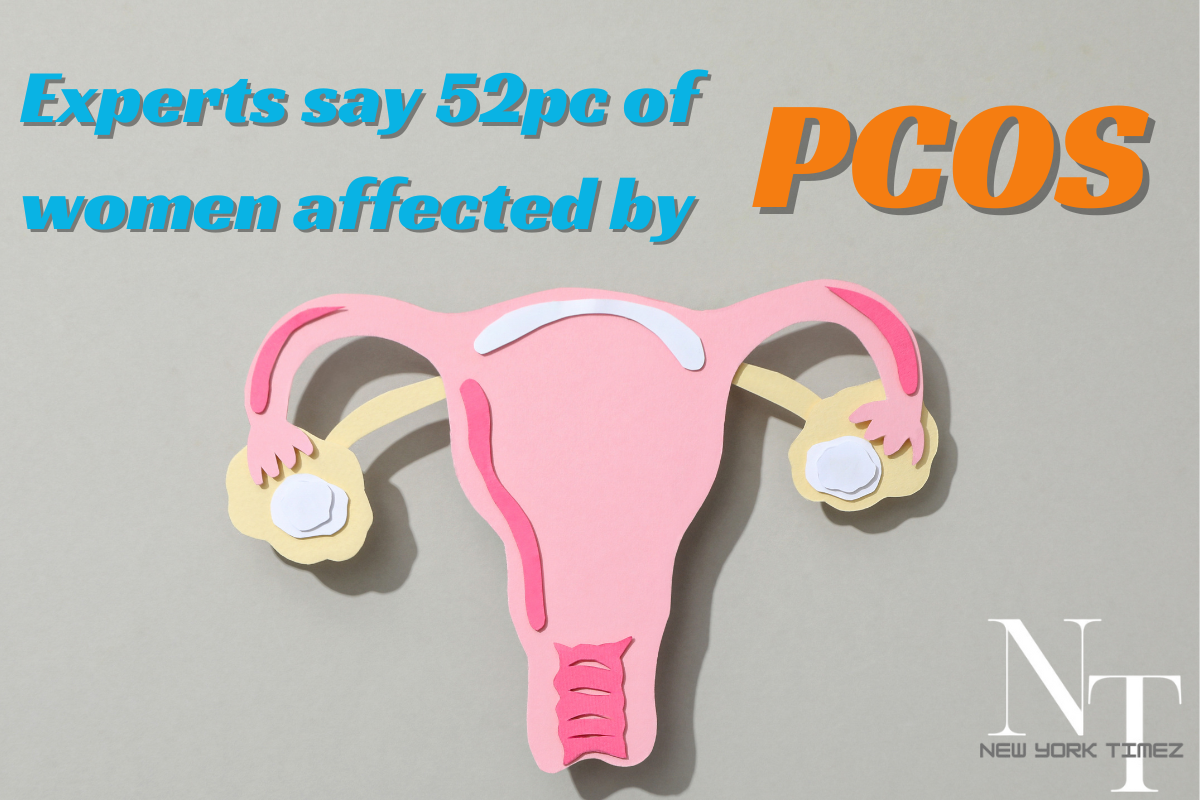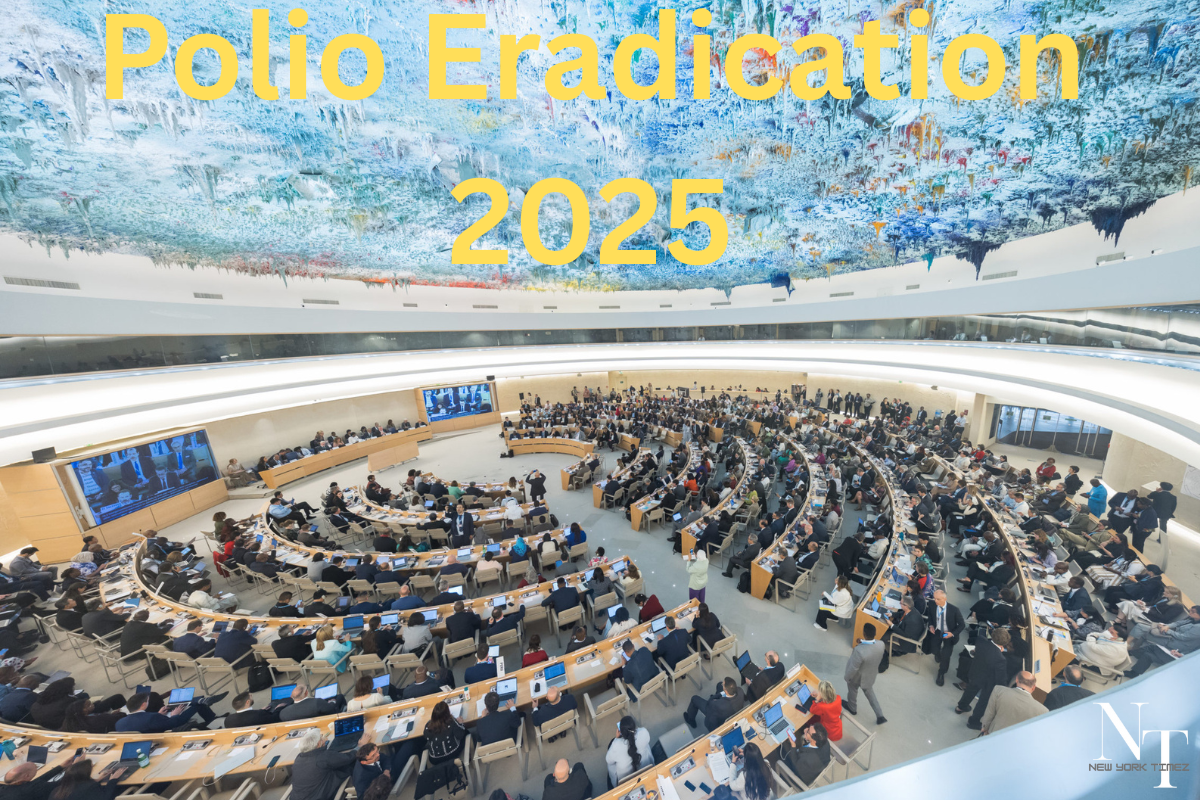
Over Half of Pakistani Women Affected by PCOS: A Growing Health Crisis
Introduction: The Silent Health Problem
Polycystic Ovary Syndrome (PCOS) is becoming a serious health issue in Pakistan. At a recent international health conference, experts revealed shocking facts — around 52% of Pakistani women of reproductive age have PCOS, and over 80% of them are not even diagnosed. This lack of diagnosis is contributing to a major fertility crisis in the country.
PCOS is a hormonal disorder that affects a woman’s ovaries and menstrual cycle. If left untreated, it can lead to infertility, weight gain, diabetes, and other health problems. The condition is especially dangerous when women do not even realize they have it.
What is PCOS and Why is it a Concern?
PCOS is a common health condition that causes hormone imbalances in women. It leads to irregular periods, unwanted facial hair, acne, and problems with ovulation. This makes it harder for women to get pregnant.
If not diagnosed and treated early, PCOS can cause long-term issues like:
Infertility
Miscarriages
Diabetes
Obesity
Mental health problems
In Pakistan, PCOS is now one of the main reasons behind increasing infertility rates among young women.
Also Read:- 30 Worst Foods For Prostate Health
Why Are So Many Women Undiagnosed?
The biggest challenge with PCOS is that most women don’t know they have it. Cultural taboos and lack of awareness about menstrual and reproductive health stop girls and women from seeking help.
1. Cultural Stigma
Talking about periods, facial hair, or fertility is still considered shameful in many parts of Pakistan. As a result, girls are not taught to understand what is normal and what is not.
Dr. Ghazala Mahmood, a leading health expert, said:
“Girls ignore signs like irregular periods and facial hair because of shame. By the time they realize it’s a problem, it’s often too late.”
2. Lack of Education
Most schools and families do not offer education about menstrual health. So, girls grow up not knowing that PCOS symptoms are red flags that need medical attention.
PCOS in Pakistan: Much Higher Than the Global Average
According to experts at the conference, PCOS affects more women in Pakistan than in most other countries. Globally, PCOS affects around 4% to 18% of women, but in Pakistan, it’s affecting over 50%.
Why is it so common in Pakistan?
Experts believe there are several reasons:
Cousin marriages (genetic factors)
Rising obesity rates
Unhealthy diets
Lack of physical activity
Poor awareness about women’s health
Dr. Rizwana Chaudhry called it a “silent health emergency.”
“We are seeing women who cannot get pregnant, are suffering miscarriages, and dealing with serious hormone and metabolism issues — all caused by undiagnosed PCOS,” she said.
PCOS Is Not Just a Women’s Health Issue
Dr. Hani W. Fawzi, a UK-based gynecologist, called PCOS a “wicked problem” — a problem that is so complicated that no single doctor or specialist can solve it alone.
It Needs a Team Approach
PCOS does not just affect the reproductive system. It also impacts mental health, physical fitness, and even the digestive system. Dr. Fawzi said:
“We need a team of gynecologists, dieticians, endocrinologists, psychologists, and public health experts to work together.”
Without early diagnosis, women cannot receive the care they need. He stressed the importance of community outreach and awareness campaigns to help women who may not even know they have PCOS.
How Can Pakistan Fight the PCOS Crisis?
Experts at the seminar offered several solutions to deal with the growing PCOS problem.
1. Start Screening in Schools and Colleges
Early screening can help detect PCOS before it causes long-term health issues. Dr. Ghazala Mahmood suggested setting up screening programs in schools and colleges to catch the signs early.
2. Nationwide Awareness Campaigns
Doctors like Dr. Nabia Tariq said Pakistan needs nationwide awareness efforts to help women understand PCOS.
“We must teach girls about PCOS from a young age. Only then can we reduce infertility and other related problems,” she said.
3. Use Technology to Help Women
Dr. Saima Zubair said technology will soon be used to support women with PCOS. She mentioned that a new chatbot powered by artificial intelligence will be launched by September. This tool will:
Help women assess their symptoms
Connect them with doctors
Give advice about treatment options
“Early diagnosis using technology can help restore hormonal balance and improve fertility,” she said.
Breaking the Silence Around PCOS
PharmEvo, a healthcare company that co-hosted the conference, is working to raise awareness about PCOS. Nabeel Akhtar, the company’s Business Unit Head, said:
“PCOS is one of the most ignored yet most common health problems among Pakistani women. We need to break the silence and help women recognize early warning signs.”
He added that PharmEvo aims to identify millions of undiagnosed women living with PCOS and provide support through awareness, diagnosis, and treatment.
A National Health Emergency That Needs Attention
Experts like Dr. Shamsa Rizwan, Dr. Nosheel, Dr. Shumaila Tanveer, and Brigadier Dr. Mamoona Mushtaq all emphasized one point: PCOS must be treated as a national health emergency.
“It’s quietly damaging women’s reproductive and overall health,” said Brig. Dr. Mushtaq.
“Myths and stigma about periods and fertility are stopping women from getting the care they need.”
The doctors urged the government to take action by adding PCOS education, screening, and counseling into national health programs.
Conclusion: Time to Act Before It’s Too Late
The PCOS crisis in Pakistan is real and growing. With over half of reproductive-age women affected — and most of them unaware — the country is facing a silent epidemic. If we don’t act now, millions of women may struggle with infertility, health issues, and emotional pain.
Early education, awareness, and modern tools like AI can make a big difference. But most importantly, we must break the stigma and empower women to talk openly about their health.
Only through a national effort, involving doctors, educators, tech innovators, and health authorities, can Pakistan hope to reduce the burden of PCOS and ensure healthier futures for women.






















































